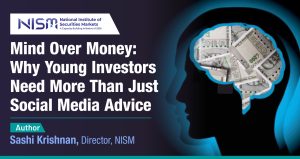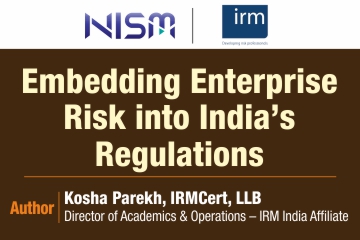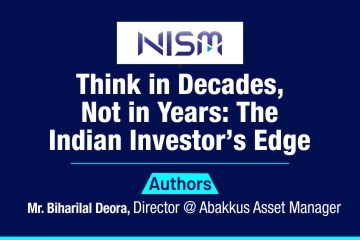
Young adults, those between the ages of 18 and 35, form a key demographic in India. They account for a population of about 600 million individuals. Over 90% of them actively save money. About 30% of them actively invest some portion of their savings. Of these young adults who invest, almost 60% use social media, like YouTube and X, for financial guidance. For them, the first port of call for financial advice is the internet, and many of them invest money based on social media recommendations.
This dependence on the internet for financial decision-making brings with it a unique set of problems – of information overload, impulsive decision-making, and behavioral biases. Decades ago, the psychologist and Nobel laureate, Herbert Simon, pointed out that humans were struggling with an information overload and that the wealth of information we encounter every day creates a “poverty of attention”. This is especially true when it comes to financial advice. Every other TV channel, every third consolidated email, and innumerable financial websites are doling out financial advice. They are telling viewers and readers which Mutual Fund schemes, stocks, or bonds to buy or sell. The battle for focus – for a few seconds of attention – has reached epic levels. Competing demands for our attention can deplete our mental bandwidth and hinder our ability to make sound financial decisions. Along with this information overload, technology now permits investors to transact anytime, anywhere. This is making us more impulsive investors. We no longer see patience as a virtue. Instant access, coupled with our behavioral biases, fuels our FOMO.
Why is it that young adults find it so difficult to reach out to experts for financial advice? A few explanations come to mind:
Young investors should and will demand low-touch, digitally driven solutions for routine services like KYC, transaction processing, tracking of their investments, etc. However, for high-quality solutions across lifecycle stages that fit their risk profiles, young investors must wean themselves away from the internet and social media and look for human assistance to support their decisions. A financial advisor can help them cut through the clutter and noise. They can help them with mindful investing.
Author: Shri Sashi Krishnan, Director, NISM
This article was originally published in NISM Newsletter July 2025.
To read the newsletter Click Here.

When people hear the term “risk management,” they often associate it with financial markets, insurance, or corporate governance. In…

As India charts its course towards Viksit Bharat, by 2047, the sophistication and depth of its financial markets are paramount.…

As investors, we often judge performance on monthly (MoM), Quarterly (QoQ) and year-on-year (YoY) statistics. It feels natural to look…
© 2025 National Institute of Securities Markets (NISM). All rights reserved.